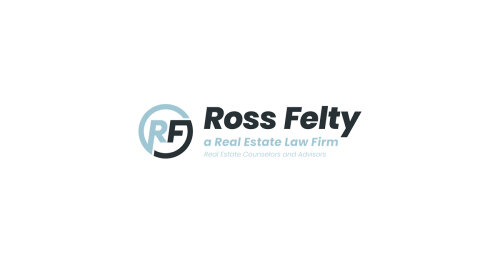Best Administrative Lawyers in Florida
Share your needs with us, get contacted by law firms.
Free. Takes 2 min.
Or refine your search by selecting a city:
List of the best lawyers in Florida, United States
About Administrative Law in Florida, United States
Administrative law in Florida deals with the rules, regulations, and legal principles governing the actions of governmental agencies at the state and local levels. These agencies are responsible for enforcing statutes, issuing licenses, handling disputes, and managing regulatory programs that affect both individuals and businesses. Florida’s administrative law system is designed to maintain transparency, hold agencies accountable, and ensure fairness in government decision-making. A primary feature of this field is the administrative hearing process, which allows parties to challenge agency actions before an administrative law judge.
Why You May Need a Lawyer
Individuals and businesses often need legal representation in administrative matters for several reasons. Common situations include:
- Challenging the denial, suspension, or revocation of a professional or business license
- Disputing fines or penalties imposed by regulatory agencies
- Responding to enforcement actions or compliance investigations
- Seeking permits or zoning approvals from government agencies
- Appealing decisions related to public benefits, such as unemployment or Medicaid
- Engaging in rulemaking procedures or public hearings
- Requesting public records or challenging governmental refusal to provide information
An administrative lawyer can help you navigate complex procedures, build a strong case, and protect your rights when dealing with state or local agencies.
Local Laws Overview
Administrative law in Florida is primarily governed by the Florida Administrative Procedure Act (APA), found in Chapter 120 of the Florida Statutes. The APA sets out processes for rulemaking, licensing, enforcement, and adjudication. Key aspects include:
- Rulemaking: Florida agencies must follow specific procedures to create and amend administrative rules, including notice to the public and opportunities for comment.
- Licensing: Agencies regulate a wide range of professions and activities. Applicants and licensees are entitled to due process before licenses can be denied, suspended, or revoked.
- Administrative Hearings: Individuals and entities may challenge agency decisions at hearings conducted by administrative law judges from the Division of Administrative Hearings (DOAH).
- Judicial Review: Final orders issued by agencies can be appealed to state courts for further review if legal errors are alleged.
- Sunshine Laws and Public Records: Florida is known for its government transparency requirements, which ensure that agency meetings and records are generally open to the public.
Frequently Asked Questions
What is an administrative law case?
An administrative law case typically involves disputes between individuals or organizations and governmental agencies regarding licenses, benefits, permits, regulations, or enforcement actions.
Who oversees administrative hearings in Florida?
The Division of Administrative Hearings (DOAH) is the primary body that assigns independent administrative law judges to preside over hearings involving state agencies.
How is the administrative hearing process different from court?
Administrative hearings are less formal than court proceedings. They are designed to resolve disputes with agencies and focus on regulations and agency rules rather than broader legal issues.
Can I represent myself in an administrative law case?
Yes, you can represent yourself (known as pro se representation), but many people choose to hire a lawyer due to the complexity of agency rules and procedures.
What is a final order and can it be appealed?
A final order is the agency’s official decision at the conclusion of an administrative process. Final orders can often be appealed to district courts of appeal if you believe a legal error occurred.
How long do I have to file an administrative appeal?
Deadlines vary, but you generally have 21 days from receiving notice of an agency’s action to request a hearing or file an appeal. It is important to check the specific rules for your situation.
What types of matters fall under administrative law in Florida?
Common matters include professional licensing, public benefits, regulatory compliance, land use and zoning, environmental permitting, employment with government agencies, and educational disputes.
Are administrative agency decisions public record?
Most administrative decisions and related records are part of the public record, unless a specific exemption applies under Florida law.
What is rulemaking and how can the public participate?
Rulemaking is the process agencies use to create, amend, or repeal regulations. The public can participate through notice and comment periods and public hearings required by the Florida APA.
How do I request public records from a Florida agency?
You can submit a public records request to the agency custodian. Florida law does not require you to state a reason, and agencies generally must respond promptly.
Additional Resources
If you need further guidance or information regarding administrative law in Florida, the following resources may be helpful:
- Florida Division of Administrative Hearings (DOAH): Handles administrative hearings and publishes decisions
- Florida Bar Association: Can assist in finding qualified administrative law attorneys
- Florida Department of State: Oversees agency rulemaking and maintains the Florida Administrative Code
- Florida Commission on Ethics: Offers guidance on state ethics laws related to public officials and agencies
- Local Legal Aid Organizations: Some provide free or low-cost legal assistance for administrative matters
Next Steps
If you find yourself involved in an administrative law matter in Florida, it is important to act promptly. Here are your next steps:
- Identify the agency involved and understand the action taken against you.
- Review all correspondence and official documents for deadlines or hearing dates.
- Gather any relevant evidence or documentation related to your case.
- Contact a qualified administrative law attorney for a consultation - they can help evaluate your options and represent you in agency proceedings.
- If you cannot afford a lawyer, seek assistance from local legal aid or advocacy organizations.
- Educate yourself about the Florida Administrative Procedure Act and the rules relevant to your specific agency or regulatory matter.
Being proactive and informed will give you the best chance of a favorable outcome in your administrative law issue in Florida.
Lawzana helps you find the best lawyers and law firms in Florida through a curated and pre-screened list of qualified legal professionals. Our platform offers rankings and detailed profiles of attorneys and law firms, allowing you to compare based on practice areas, including Administrative, experience, and client feedback.
Each profile includes a description of the firm's areas of practice, client reviews, team members and partners, year of establishment, spoken languages, office locations, contact information, social media presence, and any published articles or resources. Most firms on our platform speak English and are experienced in both local and international legal matters.
Get a quote from top-rated law firms in Florida, United States — quickly, securely, and without unnecessary hassle.
Disclaimer:
The information provided on this page is for general informational purposes only and does not constitute legal advice. While we strive to ensure the accuracy and relevance of the content, legal information may change over time, and interpretations of the law can vary. You should always consult with a qualified legal professional for advice specific to your situation.
We disclaim all liability for actions taken or not taken based on the content of this page. If you believe any information is incorrect or outdated, please contact us, and we will review and update it where appropriate.
Browse administrative law firms by city in Florida
Refine your search by selecting a city.















